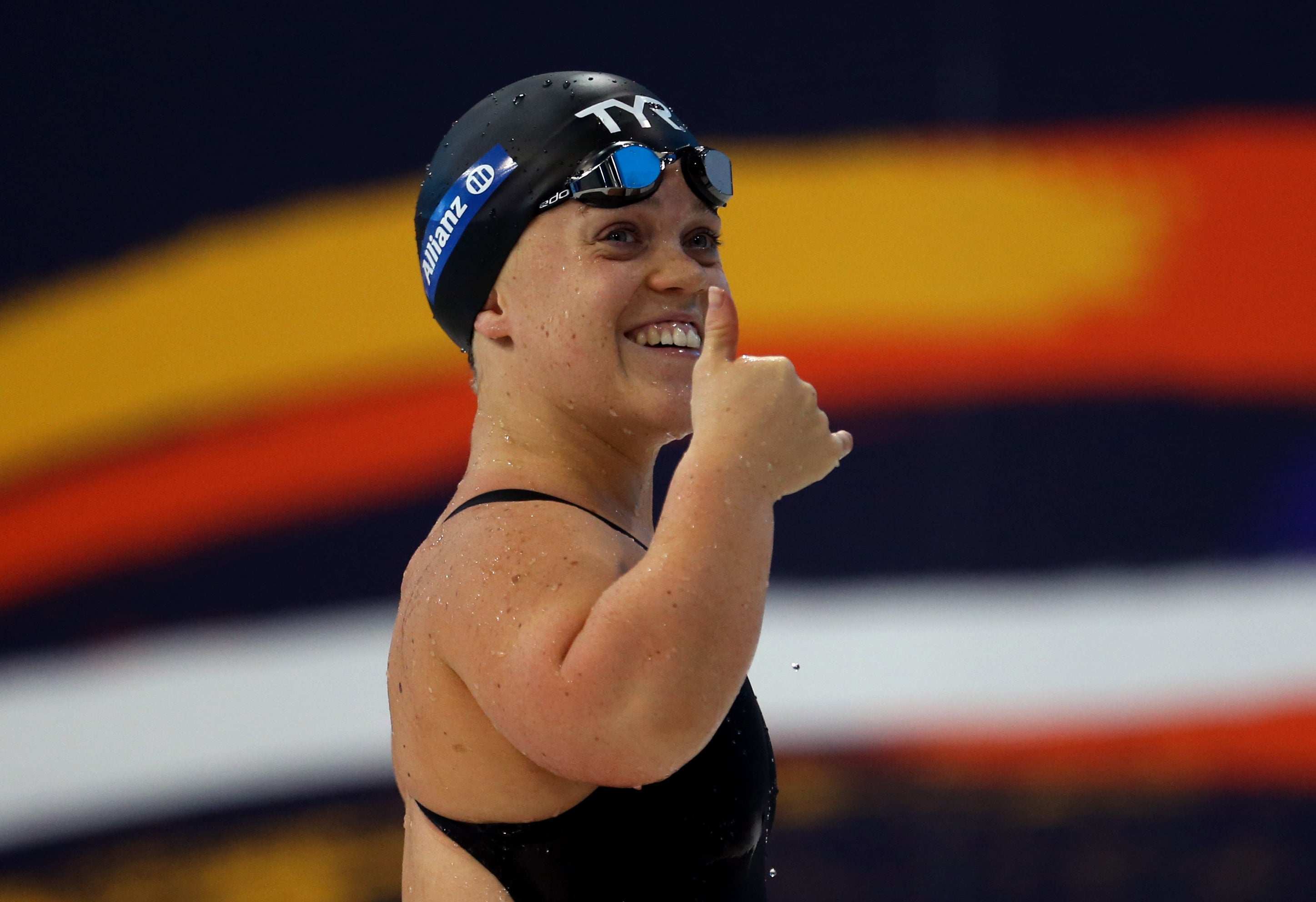In these challenging times, the grit, determination and enthusiasm of the Paralympians is a lesson for us all
The coverage has been mesmerising. But there’s a difference this year which makes these athletes’ achievements all the more poignant


Your support helps us to tell the story
From reproductive rights to climate change to Big Tech, The Independent is on the ground when the story is developing. Whether it's investigating the financials of Elon Musk's pro-Trump PAC or producing our latest documentary, 'The A Word', which shines a light on the American women fighting for reproductive rights, we know how important it is to parse out the facts from the messaging.
At such a critical moment in US history, we need reporters on the ground. Your donation allows us to keep sending journalists to speak to both sides of the story.
The Independent is trusted by Americans across the entire political spectrum. And unlike many other quality news outlets, we choose not to lock Americans out of our reporting and analysis with paywalls. We believe quality journalism should be available to everyone, paid for by those who can afford it.
Your support makes all the difference.It’s a truly humbling experience watching the Tokyo 2020 Paralympics. Covid has robbed the event of spectators, but certainly not spectacle.
The 4,400 athletes taking part in the games – delayed by a year because of the pandemic – have overcome sometimes unimaginable adversity even to reach the starting line. And in these most challenging of times, their grit, determination and sheer enthusiasm for their sport is empowering for us all.
Stuart Robinson, whose Twitter handle @LeglessRobbo tells it like it is, lost both his legs in his fourth tour of Afghanistan. Lying in hospital, he spotted a leaflet advertising wheelchair rugby, and eight years later he’s a Paralympic star.
Cyclist Jaco van Gass also bears the scars from Afghanistan. A rocket-propelled grenade cost him his left arm and bequeathed him a collapsed left lung, punctured internal organs, a fractured left knee and ankle.
As the Taliban takeover of Afghanistan prompts despair the world over, Van Gass and Robinson give us hope that amidst the most awful brutality, humanity still has the capacity to recover and even thrive.
They’ll join household names like swimmer Ellie Simmonds, who won two gold medals at the 2008 Beijing Paralympics at the age of just 13, runner Jonnie Peacock, and Dame Sarah Storey, the cyclist who saw off bullying and an eating disorder at school to win her 15th Paralympic gold this week.
The memorable Channel 4 “superhumans” ad campaign rightly lauds these athletes’ astonishing feats of physical prowess.
Egypt’s Ibrahim Hamadtou lost his arms in an accident aged 10, so he holds the table tennis bat in his mouth. Brazilian swimmer Gabriel Geraldo dos Santos Araujo won silver in the 100m backstroke after pushing off by clamping a towel in his mouth, to compensate for his lack of arms.
The coverage has mesmerised us all. But there’s a difference this year which makes these athletes’ achievements all the more poignant. The Paralympics broadcaster Channel 4 has put a full stop between the words super and human, choosing perhaps to highlight the fragilities of people with disabilities during the pandemic.
If life has felt like a struggle for us all at times in the last 18 months, imagine life with an array of physical challenges.
To remain at the top of their game when gyms and pools have been closed during the pandemic, the Paralympians have had to be ingenious. Shot put gold-medallist Aled Davies used horse-stable matting, a cargo net and a couple of convenient trees to make a throwing cage in his back garden in Cardiff, for example.
Because in the chaos of the biggest peacetime emergency this country has known, a lot of disabled people have felt forgotten, invisible. Many weren’t initially given priority for the vaccine, despite serious vulnerabilities. And ever-changing regulations posed a challenge that made daily life even more difficult.
Blind Paralympic footballer Dave Clarke told me last week of the frustrations he and others felt about the 1m and 2m social-distancing rules. I’d never thought about it before. And neither, it seemed, had the government.
It’s a good job that giving up isn’t an option for these gutsiest of sporting stars. Wheelchair tennis medallist Jordanne Whiley played with a broken wrist in Rio, yet still made the podium.
When it comes to determination, the Paralympians have got it covered. But surely we all need to help them on their way to gold by remembering the human in the superhuman. As the #wethe15 campaign highlights, the sheer number of people living with disability – 15 per cent of the world’s population – should make ministers sit up and take notice.
Campaigners say they’ve been depressingly slow to do so. The UK government’s much-delayed disability strategy, published earlier in the summer, was criticised by leading disabled parliamentarians for a lack of ambition.
Society owes it to them to up our game. And in doing so, we can all discover what’s possible.
In Afghanistan, Robinson and Van Gass saw their lives changed irrevocably, but Paralympic sport has given them both the chance to rebuild. So it’s all the more heartbreaking that taekwondo athlete Zakia Khudadadi and discus thrower Hossein Rasouli were prevented from leaving their own country by the Taliban.
Now, though, as thousands of Paralympians give it their all in Tokyo, let the talk not be of defeat, but winning.
As Professor Stephen Hawking advised us at the Paralympics opening ceremony in London 2012, we need to look up at the stars, not down at our feet. “However difficult life may seem, there is always something you can do and succeed at,” he said. Amen to that.
Cathy Newman presents ‘Channel 4 News’, weekdays, at 7pm
Join our commenting forum
Join thought-provoking conversations, follow other Independent readers and see their replies
Comments